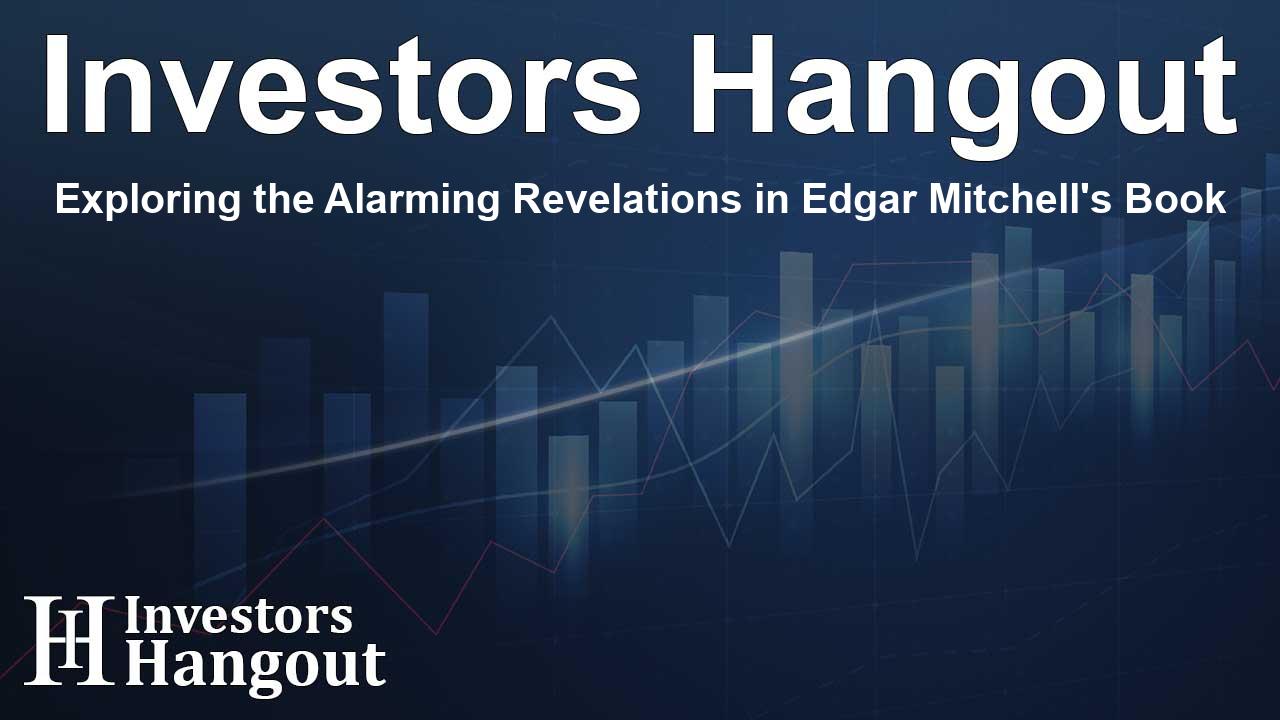Exploring the Alarming Revelations in Edgar Mitchell's Book

Edgar Mitchell's Eye-Opening Manuscript on Nuclear Threats
Edgar Mitchell's unpublished manuscript, written long ago, feels strikingly relevant to today's world. As an accomplished Apollo 14 astronaut and noted astrophysicist, Dr. Mitchell's writing opens up an important conversation about the potential consequences of weaponizing space.
A Glimpse into the History of Space Weaponization
This work, commissioned by the brilliant Wernher von Braun, a key figure in rocket science, remained hidden for nearly forty years in a bank vault. It offers a valuable perspective on how warfare has evolved along with advancing technology. At its heart, the manuscript emphasizes a serious worry: the unmatched ability humans have to destroy life on Earth in just one hour through nuclear warfare.
A Timely Warning from Years Ago
Back in the early 1970s, von Braun raised concerns about the risks of space-based nuclear weapons during his time with NASA. He felt the U.S. was not adequately equipped to grasp or prepare for the complex dangers posed by such technology. These worries were tragically confirmed years later when discussions about the contentious "Star Wars" initiative took center stage during President Ronald Reagan's time in office.
Mitchell's Journey in Advocacy
In his last days, von Braun entrusted Carol Rosin, his protégé, with reaching out to Mitchell about the potential threats posed by nuclear arms deployed in space. Sadly, Mitchell encountered significant obstacles as thirty-four publishers turned down his manuscript, highlighting the influence of government in suppressing such critical information. He faced overwhelming scrutiny and harassment, illustrating just how far authorities would go to limit the spread of sensitive knowledge.
Why Mitchell's Insights Matter Today
As geopolitical tensions rise, Mitchell's observations about nuclear weaponization are alarmingly relevant. His warnings from years ago resonate in current debates about technological advancements and military strategies. Countries like China and Russia are enhancing their military capabilities, which makes the implications for global security increasingly significant.
Interpreting Modern-Day Implications
Our heavy reliance on satellites for communication, navigation, and military operations puts them at high risk during conflicts. As countries compete for dominance in space, the likelihood of satellite interference using non-kinetic weapons—such as lasers and jammers—grows. Mitchell's findings highlight the complex repercussions that could arise from these technological developments.
The Importance of Awareness and Preparation
It's crucial for all of us to understand these threats. Edgar Mitchell’s well-researched and articulate manuscript provides vital insight into the possible dangers of weaponizing space. His collaboration with author Carol Mersch has drawn important attention to this topic, making it more accessible for everyone who wants to grasp the delicate nuances of today’s nuclear threats.
Contact Information and Where to Find the Manuscript
If you're interested in exploring these themes further, you can find Mitchell’s manuscript published and available for purchase through major retailers like Amazon.com, BarnesandNoble.com, and Pen-L.com. Edgar Mitchell, a thinker of profound insight, underscores the intricate relationship between technology, military strategy, and the future of humanity.
For inquiries, reach out to Pen-L Publishing via representative Duke Pennell at 479-871-3330.
Frequently Asked Questions
What is the main topic of Edgar Mitchell's manuscript?
The manuscript covers the potential dangers and implications of nuclear weaponization in space, emphasizing humanity's capability to inflict catastrophic damage.
Who was Wernher von Braun?
Wernher von Braun was a prominent rocket scientist instrumental in the development of the U.S. space program. He mentored Edgar Mitchell and expressed concerns about the dangers of space-based nuclear weapons.
Why wasn't the manuscript published initially?
The manuscript faced rejection from thirty-four publishers due to government influence and the controversial topics it addresses.
How relevant are Mitchell's insights today?
Mitchell's observations remain very relevant today, especially as countries like China and Russia enhance their military capabilities in space, raising pressing global security concerns.
Where can I buy the manuscript?
You can purchase the manuscript at Amazon.com, BarnesandNoble.com, and Pen-L.com, making it a crucial resource for understanding the nuclear threats related to space.
About The Author
Contact Caleb Price privately here. Or send an email with ATTN: Caleb Price as the subject to contact@investorshangout.com.
About Investors Hangout
Investors Hangout is a leading online stock forum for financial discussion and learning, offering a wide range of free tools and resources. It draws in traders of all levels, who exchange market knowledge, investigate trading tactics, and keep an eye on industry developments in real time. Featuring financial articles, stock message boards, quotes, charts, company profiles, and live news updates. Through cooperative learning and a wealth of informational resources, it helps users from novices creating their first portfolios to experts honing their techniques. Join Investors Hangout today: https://investorshangout.com/
The content of this article is based on factual, publicly available information and does not represent legal, financial, or investment advice. Investors Hangout does not offer financial advice, and the author is not a licensed financial advisor. Consult a qualified advisor before making any financial or investment decisions based on this article. This article should not be considered advice to purchase, sell, or hold any securities or other investments. If any of the material provided here is inaccurate, please contact us for corrections.
